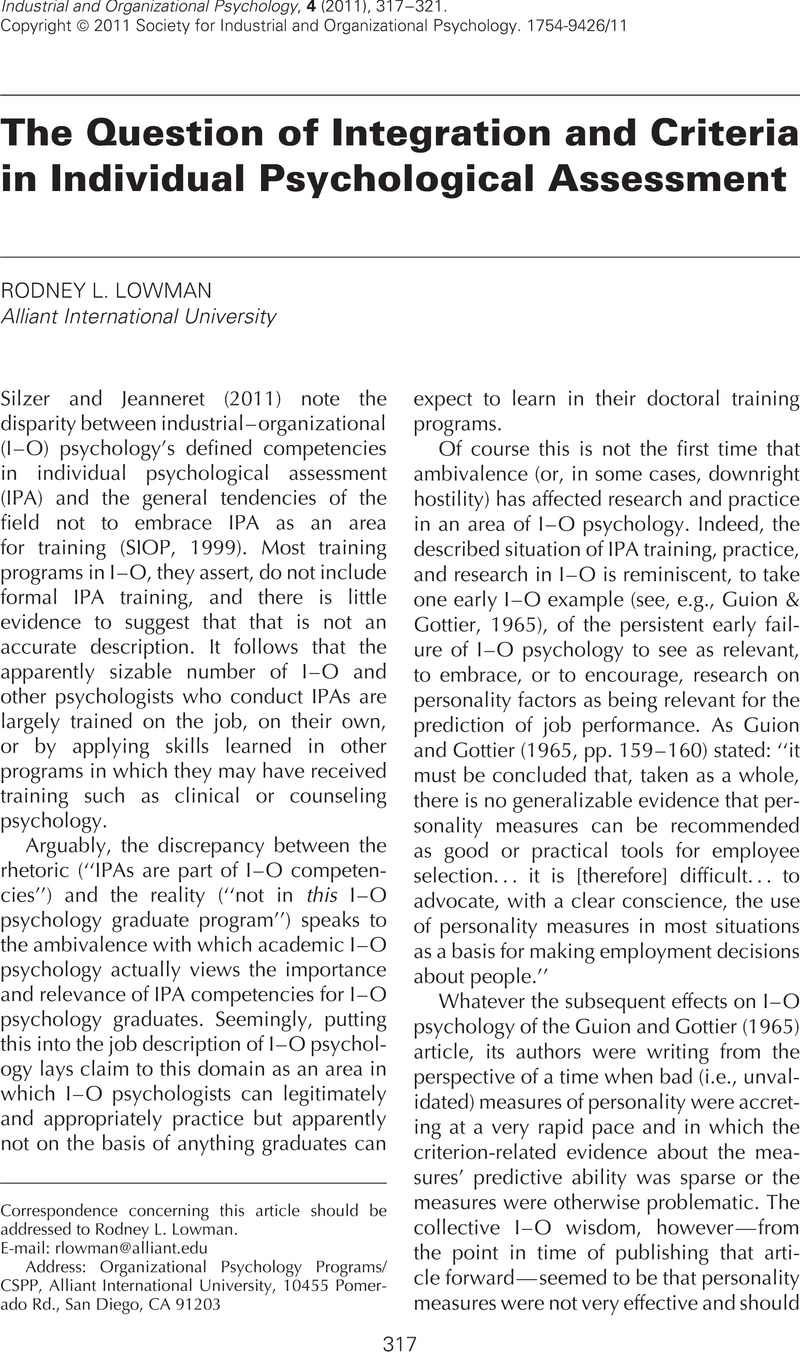Crossref Citations
This article has been cited by the following publications. This list is generated based on data provided by Crossref.
Jeanneret, Richard
and
Silzer, Rob
2011.
Individual Psychological Assessment: A Core Competency for Industrial–Organizational Psychology.
Industrial and Organizational Psychology,
Vol. 4,
Issue. 3,
p.
342.
Mortensen, Ralph
2012.
Choosing Leaders and Choosing to Lead: Science, Politics and Intuition in Executive Selection by Douglas Board.
Personnel Psychology,
Vol. 65,
Issue. 3,
p.
717.



